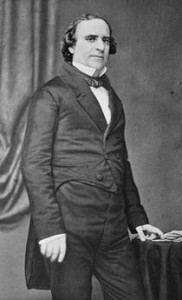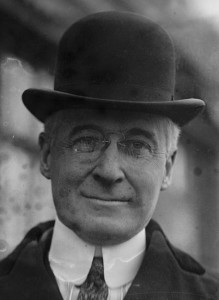Shmuel Ullman (1840-1924) was born in Hechingen, Germany. Due to persecutions of Jews in the region, his family fled to the US in 1850, settling in Mississippi. Ullman spent much of his youth working in his father’s butcher shop. The Civil War broke out when Ullman was just 21, and as a citizen of Mississippi, the young man served in the Confederate Army. Following the war, Ullman got married and started a dry goods business. He became active in his town’s political and religious life, often devoting his time to the needs of the community. He then moved to Alabama and started a new hardware business. Together with his wife, they founded a hospital for the needy. Ullman also served on the Board of Education, was a key civil rights activist, and fought tirelessly to bring equal education for African-American children. His efforts led to the first free public school for blacks. At the same time, he served as the president and unofficial rabbi of Temple Emanu-El in Birmingham. When he finally retired, Ullman devoted his time to writing. The most famous of his essays and poems is titled “Youth”. It was the favourite poem of American General and World War II hero Douglas MacArthur, who credited the poem with getting him through the horrors of the war. MacArthur had it framed and hanging in his Tokyo office, and introduced the poem (and its poet) to the Japanese. Many Japanese, too, were given hope by those words, ultimately making Ullman one of the most popular poets in Japan – even moreso than in America! It was the same poem that inspired Konosuki Matsushita to start a business despite his advanced age, giving birth to Panasonic. Kim Dae Jung often quoted the poem in his successful campaign to become President of South Korea, as did Robert F. Kennedy, and countless other noted figures around the world. Seventy years after Ullman’s passing, his home was turned into a museum by the University of Alabama and the Japan-America Society.
Words of the Week
Youth is not a time of life; it is a state of mind…
… Nobody grows old merely by a number of years. We grow old by deserting our ideals…
… Years may wrinkle the skin, but to give up enthusiasm wrinkles the soul…
– Verses from Samuel Ullman’s “Youth”



